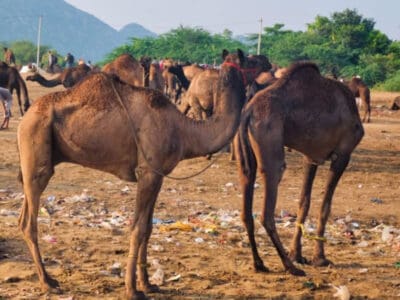Plastic pollution is an enormous global problem, and a lot of focus has been rightly placed on the devastating effects that plastic is having on our oceans and marine life. But plastic pollution on land is a big problem, too, as experts have recently been reminded when they started discovering giant blobs of the stuff inside the stomachs of dead camels.
What is happening?
California-based environmental scientist Marcus Eriksen and United Arab Emirates (UAE)-based veterinary microbiologist Ulrich Wernery co-authored an article titled “The plight of camels eating plastic waste.”
Eriksen described one autopsy as “the most surreal thing in the world,” and their findings showed that plastic clumps called polybezoars, which Eriksen said “range from the size of a basketball to roughly a large suitcase,” are responsible for 1% of the camel deaths in the UAE.
“All [camels] know in the desert [is] if it’s not sand, it’s food,” Eriksen said. “If they see a plastic bag stuck in a tree … or stuck against a fence, they might think, ‘Oh, that’s a novel piece of food,’ and they’ll consume it.”

